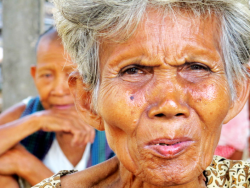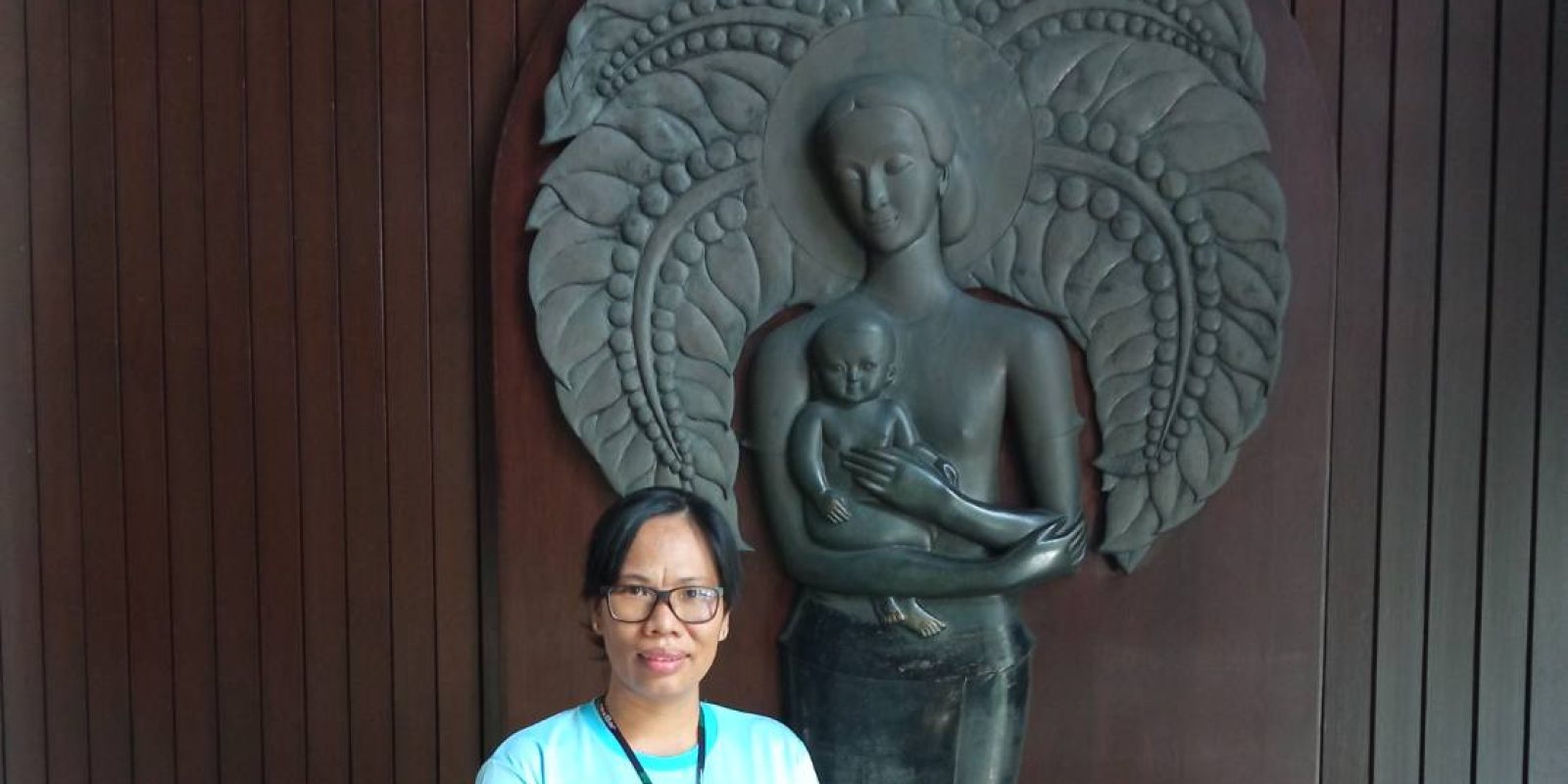Cambodia: a grandmother wishes for a world free of cluster bombs and landmines
08 March 2012

Phnom Penh, 8 March 2012 – Hardened, darkened, worn away by the sun, Yay Mao’s skin has transformed into a strong, leathery shield, protecting her from the outside world. Like any well-worn leather, Mao’s skin has slowly stretched over time and is now excessively large for her shrinking, frail figure. She thinks she is 65 but when asked what year she was born, she cannot say. Her skin would suggest many years older.
She sits wiping away the dust on the glass frame encasing the photo of Vutha. Although only 5 months have passed since the death of her grandson, the dust that has collected gives the impression that it has been years. It is the dry season here in Cambodia and dust chokes the air and invades every corner, every crevice of Yay Mao’s poverty-stricken village.
“I wanted to die with him that day,” she recalls with a furrowed brow, her gaze still transfixed by her grandson’s photo. “We loved each other so much. We always ate together with one plate.” She begins to pat her eyes with a handkerchief that is handed to her from one of the many village women that sit surrounding her. Here, mourning is a communal process and all the village women understand that well. “My tears drop everyday…everyday.”
Vutha was only ten-years-old when he was killed by a cluster bomb discovered close by his home last October. Sadly, it was not the first time that these indiscriminate weapons have devastated their community. Some years ago, a landmine that had been lying patiently in their very own backyard since the 1970’s also killed Yay Mao’s daughter and niece. Roughly forty years had passed since these landmines were first laid and yet their deadly legacy continues to haunt countless Cambodians.
When asked if there were more explosive remnants of war close by the village the women shrugged their shoulders, “Probably… but what can we do? We must live.” Refusing to be trapped by a mental minefield and with nowhere else to go, village life continues within a suspected hazardous area.
Yay Mao has not yet reconciled with this injustice she has suffered. When asked what she would say to the people who produced and laid these weapons, Yay Mao did not hesitate, “I feel as though I want to kill them the way they killed my grandson… It is not fair.”
Little by little however, her Buddhist faith guides her forward. She finds solace in the local pagoda where she feels Vutha’s presence; he had always aspired to one day become a monk. She sits and prays for these merciless weapons to disappear, for strength and most of all, for happiness. “Without happiness, we are also dead.”


